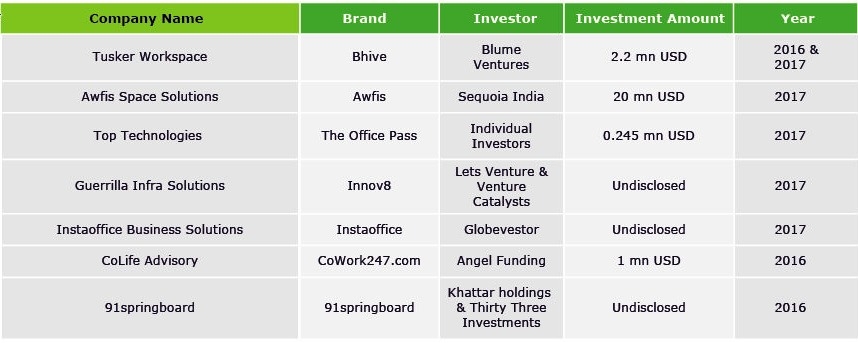7th September 2017
'Coworking' is the latest buzzword in commercial real estate and the segment has witnessed immense growth fuelled by the start-up boom in India. In the last two years more than 350 players have forayed into Coworking segment. In Bengaluru, the total leased space occupied by Coworking segment have increased from 0.13 mn Sft in 2014 to 0.52 mn Sft in 2016. By 2020, the total space leased by coworking segment in India is expected to be 8 mn Sft.
The collaborative, low cost format of Coworking space supports the start-ups and small organisations at the early growth stage. Apart from providing the infrastructure support, this model encourages networking, collaboration of professionals, idea exchange and helps build a community. India is all set to have 10,500 start-ups by 2020 (NASSCOM Report) which will be a major boost to the sector.
Moreover, the recent market trends indicate that bigger operators including WeWork and Cowrks are witnessing high demand from large corporates as well. Large corporates are attracted to this as it helps them to manage their growth volatility better.
This segment is attracting high interest from VCs, Family Offices and Individuals for investments; also, major commercial developers including Embassy, RMZ and others have tied-up with Coworking international/national operators or planning to start their own brand in this space.
Table: Key Investments in Coworking Segment (2016-2017)

‘Coworking’ is a business service provision model that provides shared office spaces to businesses and individuals with flexible rental options that range from monthly to daily and hourly format. In comparison to the traditional leased office spaces, Coworking spaces offer quite a few advantages which create a growth conducive environment for businesses.
The spectrum also includes, incubators / accelerators and business centres. Incubators are primarily focused on entrepreneurs / businesses with a high growth plan and willing to grow in collaboration. The incubators provide the resources, infrastructure, mentorship and funds to firms at the early/ nesting stage.
Business Centre operators are also incorporating necessary changes in their existing business model to tap the Coworking market opportunity. Global Business Centre operator Regus has tweaked their format and tied up with developers across locations to explore this market opportunity in India.
The sudden proliferation of Coworking spaces has now prompted investors and developers to evaluate the segment’s potential as an investment tool. In a typical model operators are taking commercial office space (Grade A , B and C properties) in prime markets on lease for fixed years and converting them into a Coworking facility. The gross margin for operators is ranging between 15% and 25% . Currently, operators are achieving breakeven in 1 - 2 years for small Coworking space whereas larger payers are likely to achieve in 2- 3 years.
The Coworking space is continuously evolving as operators are exploring formats, business models and trying to create their USP with value added, innovative services. With global players and Indian corporates joining the league, a strategic collaboration between the developers, operators and incubators is going to be predominant. Going forward, such collaboration will offer required spread and will allow the development of specifically designed facilities for different industries.
(Data Source: Meraqi Research)